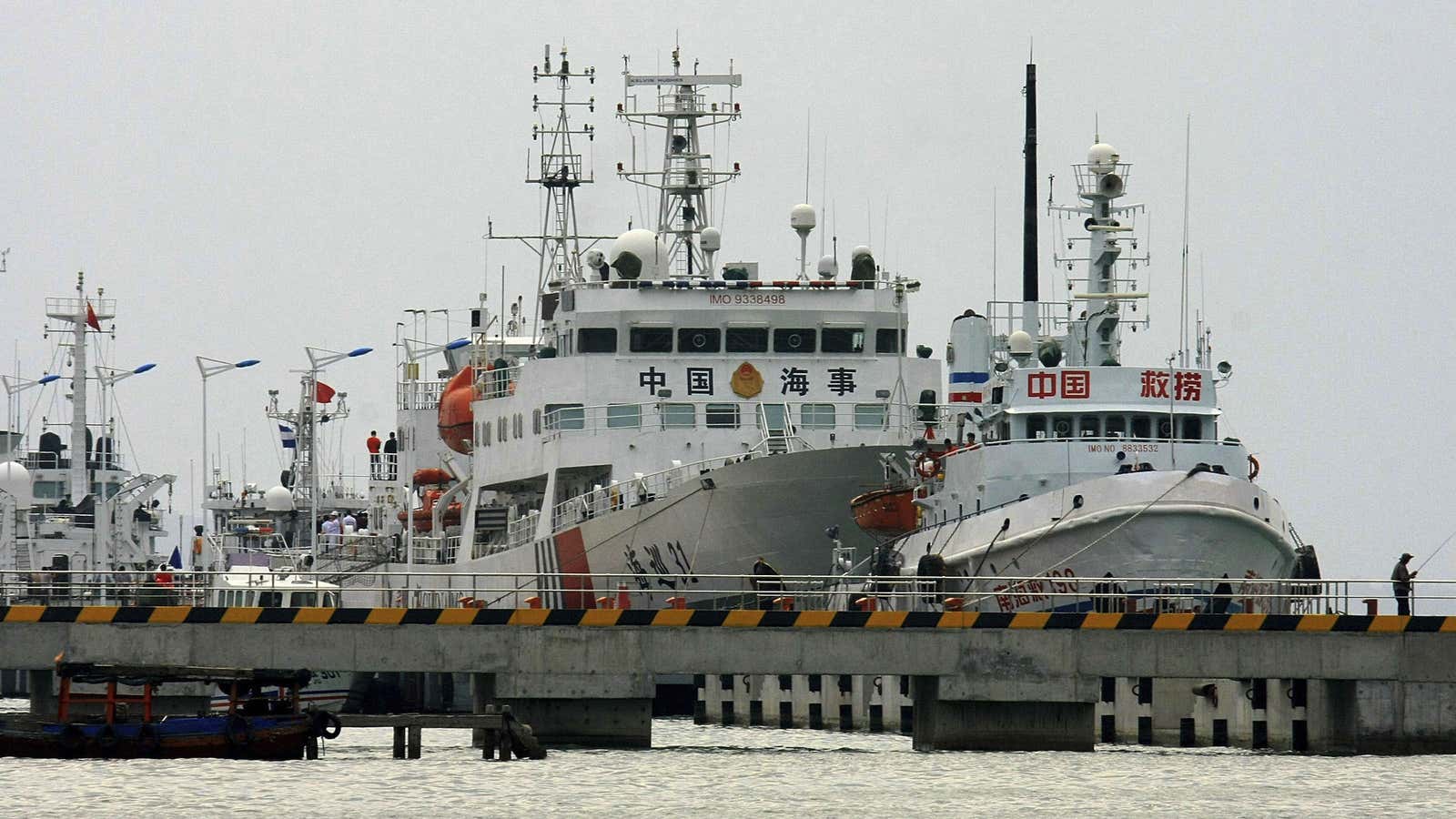In the aftermath of the March 8 disappearance of a Malaysia Airlines plane with 239 people on board, 153 of them Chinese nationals, Beijing is flexing its muscles. The Chinese government has dispatched two warships, 10 satellites, over 50 marines to the South China Sea, and—although the Malaysian government didn’t formally invite them—a 13-member delegation to advise search and rescue efforts from Kuala Lumpur.
The assertive response marks a new stage in China’s ascension as a regional superpower, a role the country hasn’t fully embraced despite its expanding military and trade power in East Asia. While China has made claims over disputed territory (in the air, the sea, and in passports), it has rarely deployed its military and officials in such a public way.
On March 10, Chinese officials said they had “a responsibility to demand and urge the Malaysia side to step up search efforts…and provide relevant information to China correctly and in a timely manner.” In response, the Malaysian government re-issued its pledge to fly Chinese relatives of the passengers on board to Malaysia.
China’s show of strength may simply be an effort to show angry Chinese families that their government is actively pushing for answers and participating in, if not leading, search operations. Chinese officials have already been pelted with water bottles thrown by the frustrated relatives of passengers. But the crisis is also an occasion for Beijing to continue what has been a decade-long expansion (pdf) of militarily and diplomatic engagement in Southeast Asia, a region that’s traditionally been part of the United States’ realm of influence.
Some observers have hailed the last few days of cooperation between the countries more accustomed to arguing over islands and shoals as a hopeful sign for future negotiations. But it’s not likely that China’s stance toward its neighbors has softened much over that time.
Just last week, Chinese officials said that peace in the region could only be “maintained by strength.” Part of that strength, it seems, involves an aggressive Chinese response when disaster strikes.
